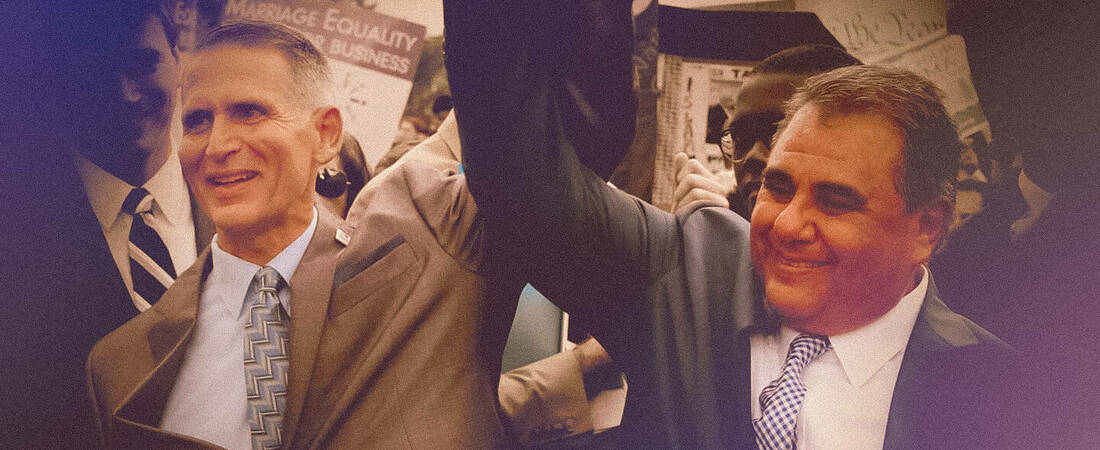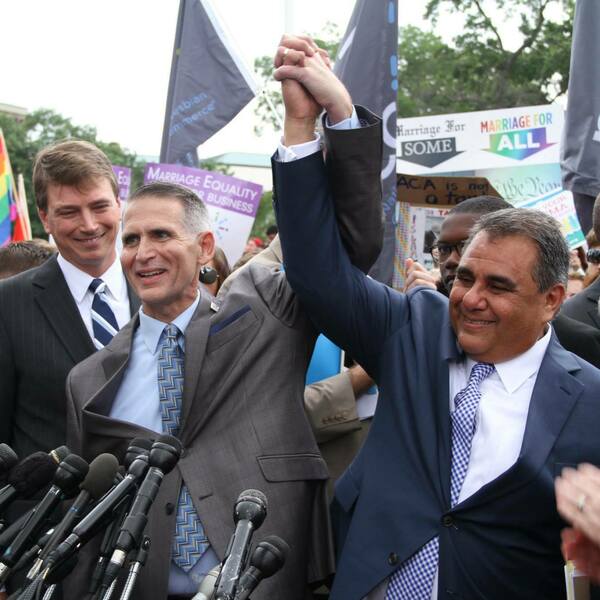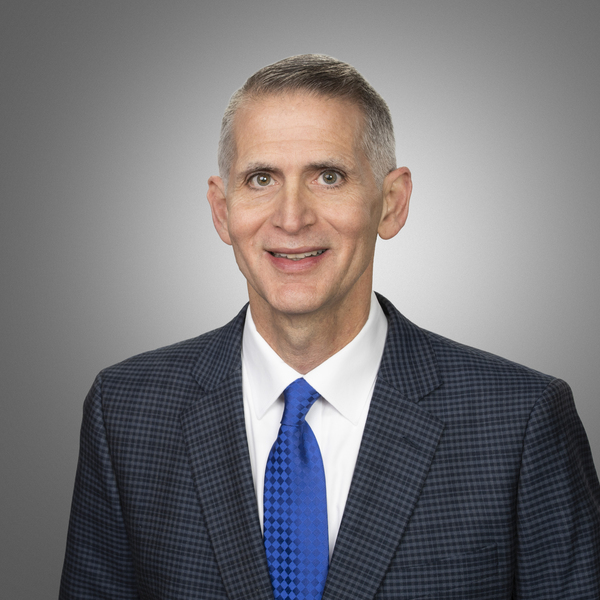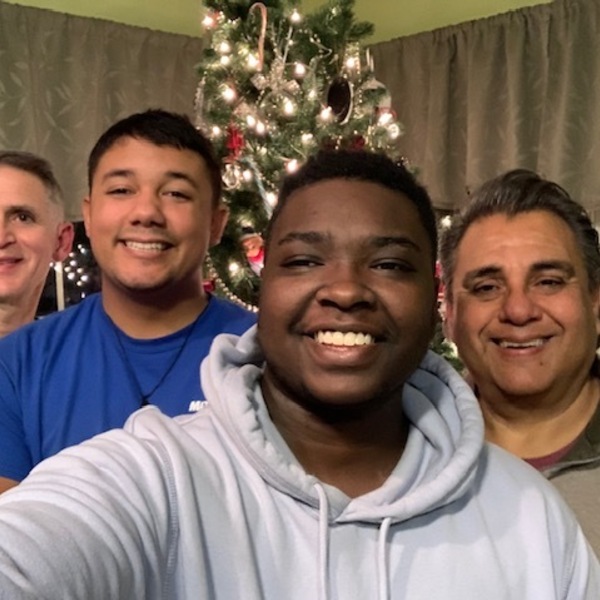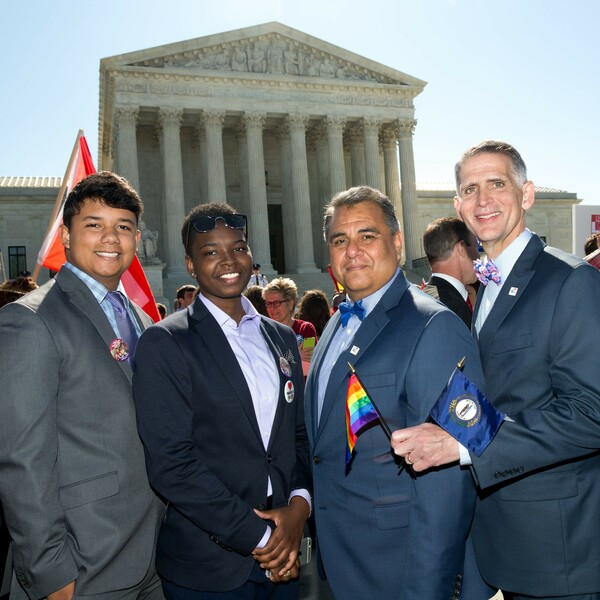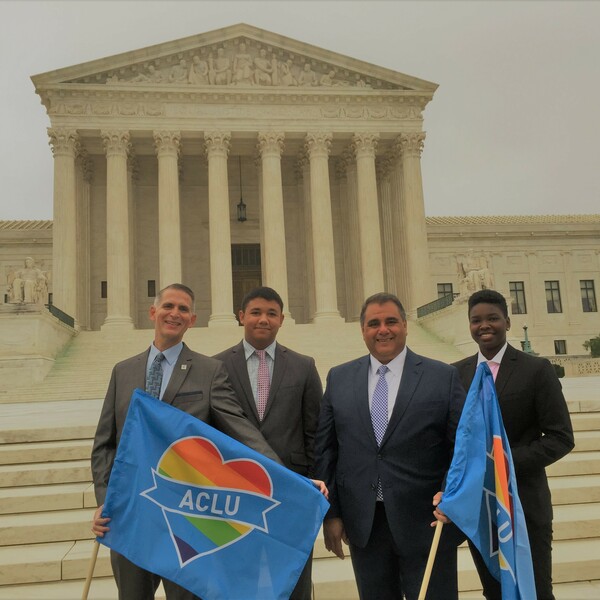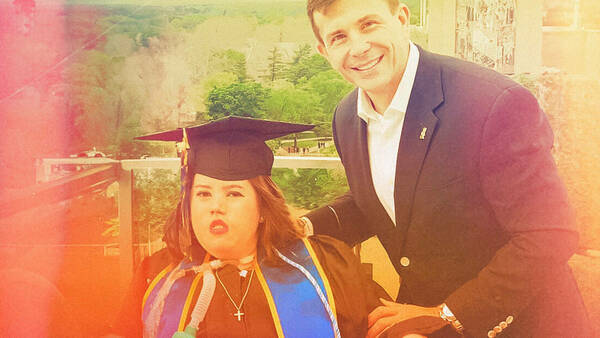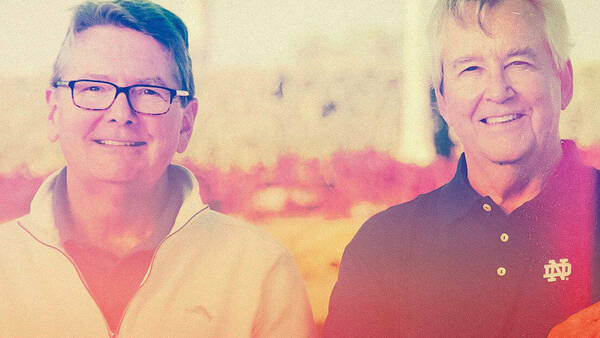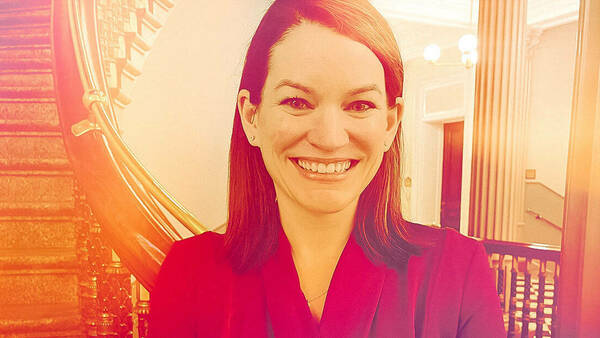Greg Bourke ’82 M.A. says that he and his family live “the most normal, boring, regular lives you can imagine.”
Don’t get the idea that he is slighting life at home with his husband, Michael DeLeon, and their two children, Isaiah and Bryson. Rather, Bourke wants to emphasize this point to advocate for the full inclusion of same-sex couples in Catholic Church life.
“People in the Church have this roadblock in their mind; they can't even imagine what it would look like to have same-sex married couples in the Church,” he says. “What I want to do is present an image that says, you know what, we’re already here. I want to show how the lives that we live are hardly different at all from what opposite-sex couples might live.”
Bourke lays out that perspective in his book, Gay, Catholic, and American, which was published by the University of Notre Dame Press in September 2021.
He and DeLeon met at the University of Kentucky, where Bourke was working on an M.B.A. and DeLeon was finishing up his undergraduate degree. Like many other couples, they got married, had children who attended the local Catholic schools, and have been active members of their parish. But unlike many Catholic couples, their marriage is not blessed or recognized by the Church. And for many years in Kentucky, it was also not recognized by the state. That’s what led to an extended legal battle that ended with Bourke, DeLeon, and their two children as four of the plaintiffs in the historic Obergefell v. Hodges Supreme Court case that legalized same-sex marriage nationwide in 2015.
Because the state did not recognize their marriage, Bourke and DeLeon took special efforts to establish certain marriage benefits in their wills and through powers of attorney. Because DeLeon was the official adoptive father for Isaiah and Bryson because unmarried couples — but not single people — were denied the right to adoption, Bourke always drove with health care powers of attorney for both children in the glove box of his car, in case of an emergency where he needed to prove that he could make their medical decisions.
As they watched states like Massachusetts, New York, and Iowa legalize marriage equality, Bourke and DeLeon decided in 2013 to file a lawsuit challenging Kentucky’s state ban on same-sex marriage in order to protect their family.
And it was indeed a family decision with Isaiah and Bryson, who had witnessed their parents’ wedding in Canada in 2004. Bourke and DeLeon asked both children what they thought before filing the lawsuit.
“Their first response was surprise because, in their minds, we were already married and they weren’t in tune enough with the political landscape to realize that the state didn’t recognize that,” Bourke says. “And then they were a little bit outraged and said, ‘Yeah, you definitely need to do this.’”
They won their lawsuit, but then the governor of Kentucky challenged the ruling. In the course of that case being heard by federal courts, their lawsuit was merged with others and became the Obergefell v. Hodges case that went before the Supreme Court.
As this challenge wound its way through the court system, the family continued those normal lives Bourke describes. He worked in data analytics at Humana Military Healthcare for 24 years and is now a health economist for Anthem Blue Cross Blue Shield. DeLeon worked at GE/GE Appliances in information technology, database administration, and project management. Both were instrumental in creating LGBTQ employee resource groups where they worked.
And every Saturday night, the family went to Mass at Our Lady of Lourdes Catholic Church in Louisville, where they have been active parishioners for 34 years.
“We’ve been practicing our faith regularly for almost 40 years together, and I think that really has had a lot to do with what has made our relationship strong and given us the support we needed to remain as a couple together for so very long.”
Bourke acknowledges that his experience is a unique one. Some people are surprised to hear they’ve found such a welcoming parish. Some in the LGBTQ community have criticized Bourke and DeLeon for staying in a faith tradition that does not acknowledge their relationship or marriage.
“I understand and respect that,” Bourke says of the LGBTQ Catholics who choose to walk away from the Church. “We often have to defend what it’s like to still remain faithful members of our parish, because it is challenging. The Church has its policies and it can be hurtful and discouraging. But Michael and I have decided that it’s important to us and we’re going to stay.”
That kind of steadfastness in faith comes from growing up in an Irish Catholic family, his Catholic school education, and his time at Notre Dame. While he obtained his bachelor’s in sociology from the University of Louisville, he refers to his Notre Dame experience as “my second confirmation.”
“The Notre Dame experience was very influential for me and helped solidify my faith,” he says. “The kind of progress that a lot of people go through with their faith, is that they do it for so many years because their family expects them to. At Notre Dame, I had the opportunity to really embrace my faith and say, ‘Yes, absolutely, this is important to me and this is how I am going to live my life.’”
It was also the first time that Bourke developed friendships with other gay men and gay Catholics, and since graduation, he had been an active supporter of the Gay and Lesbian Alumni of Notre Dame and Saint Mary’s (GALA-ND/SMC) group. In January 2022, GALA-ND/SMC will be replaced by the Alumni Rainbow Community of Notre Dame (ARC ND), an official Alumni Association affinity group. Part of his goal for the book is to increase representation for gay Catholics.
“I want to get to LGBTQ Catholics, those who have been hurt, who feel like they’ve been marginalized, who have given up, and I want to encourage them not to do that,” Bourke says. “I want to give hope to people, that they don’t have to choose between their identity as a queer person and their identity as a Catholic — they don’t have to be mutually exclusive. I hope I presented an example of what it might look like to be able to have both.”
